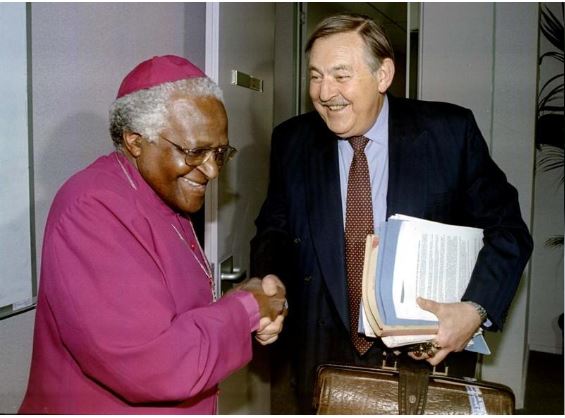Pik Botha, who became the global face of South Africa’s reviled apartheid government as Pretoria’s minister of foreign affairs, has died aged 86 after a lengthy illness, the eNCA news network reported on Friday, citing his son.

By turns urbane and jovial, Botha, foreign minister from 1977 until the end of white rule in 1994, was seen as a reformer in the hard-line National Party administrations he served under.
In 1986 he predicted that South Africa might one day have a black president, a statement that earned him a stern rebuke from President P.W. Botha, who was no relation.
“As long as we can agree in a suitable way on the protection of minority rights without a racial sting … then it would possibly become unavoidable that in future you might have a black president of this country,” he said.
Botha had the unenviable job of defending apartheid on the world stage as South Africa grew increasingly isolated, facing economic sanctions abroad while imposing a state of emergency at home and attempting to destablise its African neighbours.
The Cold War provided the backdrop, as several countries in the region such as Angola and Mozambique allied themselves with Moscow, while Pretoria tried to portray itself as a bulwark against communist expansion.
Regarded as a skilled behind-the-scenes negotiator who loosened adversaries up over rounds of drinks, Botha’s accomplishments included securing a peace protocol that ended South Africa’s military involvement in Angola, where Cuban troops had been sent to defend the Marxist government.
That in turn helped pave the way for the independence of Namibia 1990, which also had an apartheid-style government and had been under South African administration for decades.
After Nelson Mandela became South Africa’s first black president in 1994, Botha served as minister of minerals and energy for two years in a government of national unity.
“South Africa is quite far advanced due to the combined effort of both blacks and whites; that they need each other. I used to say we are like a zebra: if you put a bullet into the black stripe or the white stripe, the animal will die,” he was quoted as saying in 1997, after he left the government.
Editing by Matthew Mpoke Bigg and Peter Graff

